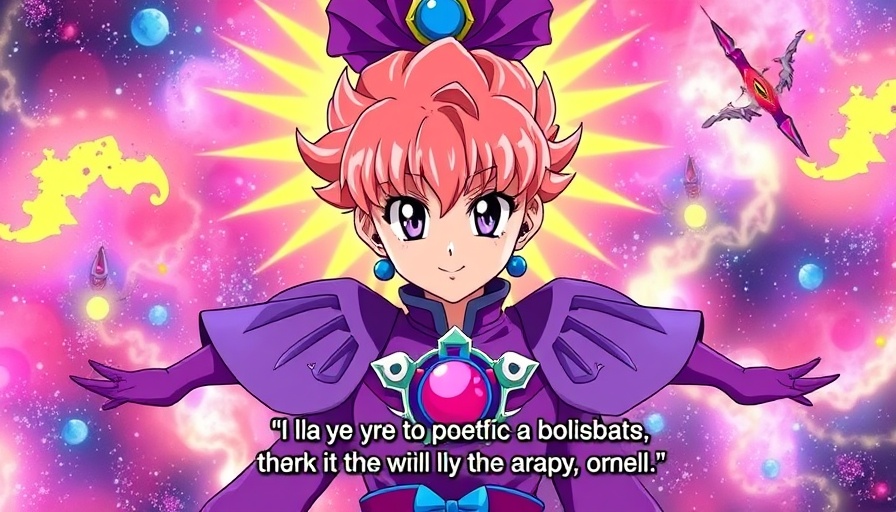
AI Translation Gone Wrong: A Case Study in Localization
Recently, anime streaming service Crunchyroll found itself embroiled in controversy when AI-generated subtitles for the series Necronomico and the Cosmic Horror Show went viral for all the wrong reasons. Fans quickly noticed glaring errors in the translations, which included phrases like “ChatGPT said” featured in both English and German subtitles. Many viewers expressed their frustration over social media, showcasing the ridiculousness of the machine-generated text.
What Went Wrong with Crunchyroll’s Subtitles?
The backlash intensified as fans pointed out misspelled character names and nonsensical sentence structures, highlighting a fundamental issue with the reliance on AI for localization. A particularly unfortunate aspect was that Crunchyroll’s use of AI in translation seemed to contradict company president Rahul Purini's previous assurances that AI would not play a role in creative processes, such as localization.
The Importance of Human Touch in Localization
Localization is more than mere translation; it involves understanding cultural nuances and context to convey the intended meaning effectively. This incident raises questions about the balance between automation and the essential human element, particularly in creative fields like entertainment. While AI has its merits in efficiency and cost-saving, the creative nuances often get lost in translation.
History of Controversy: AI vs Human Translators
This incident echoes longstanding debates in the anime community regarding translation accuracy. From localization mishaps in popular shows to heated discussions on translator intent, fans have always demanded higher standards. Historically, fans have critiqued both highly literal and excessively loose translations. Now, with AI mishaps like these, it’s clear there remains a place for skilled human translators to navigate the fine line between cultural fidelity and artistic license.
Potential Future Trends: AI Integration and Human Oversight
This situation invites critical reflection on how content creators, particularly in tech-driven sectors, can safeguard their reputation while embracing the potential of AI. Industry experts might advocate for a hybrid approach—leveraging AI for preliminary translations while employing human translators for reviews and adjustments. Generous investment in technology can improve operational efficiency, but a commitment to quality and accuracy must remain at the forefront.
Conclusion: The Call for Better Localization Standards
As the demand for quality translations grows in globalization, the role of human oversight becomes increasingly critical. This situation serves as a reminder that there are limits to what AI can achieve, particularly in fields requiring finesse and cultural sensitivity. The question remains whether companies like Crunchyroll will adapt their strategies post-controversy to include human verification in their translation processes. Advocating for these changes can significantly affect user satisfaction and brand loyalty.
For industry executives, it’s essential to keep abreast of these developments and consider how your own organizations can benefit from a balanced approach to localization that respects both efficiency and artistry.
 Add Row
Add Row  Add
Add 




 Add Row
Add Row  Add
Add 

Write A Comment